|
|
|
|
Nau mai haere mai – welcome to this week’s newsletter.
It’s a truism that leader of the opposition is the toughest job in politics. But these days the description hardly seems adequate. The National Party has not only churned through five leaders since Jacinda Ardern was elected in 2017, it is vastly diminished as a parliamentary force – in both caucus numbers and ideological coherence. Tough job indeed.
As Massey University’s Richard Shaw argues, the greatest challenge for the party’s latest leader will be uniting his own MPs and reassuring the wider electoral base that the party is back in business.
This will be no easy task. Christopher Luxon is surrounded by previous leaders, each with their own supporters, and a clear divide between the party’s conservative (Christian) and liberal wings. Once a broad political church, National’s schisms will take some fixing.
You’ll find more to read in this newsletter or on our home page, including a preview of things to come when New Zealand switches to a traffic-light COVID management system on Friday, the Auckland boundary lifts a few days later and we all start planning a summer break.
Many thanks for your ongoing readership and support. Feel free to share this newsletter with others – until next week, mā te wā.
|

|
Finlay Macdonald
New Zealand Senior Editor & NZ Editor: Politics, Business + Arts
|
|

AAP
Richard Shaw, Massey University
Once a broad political church, the National Party has become a house divided against itself. New leader Christopher Luxon faces huge challenges uniting both the party and its wider congregation.
|
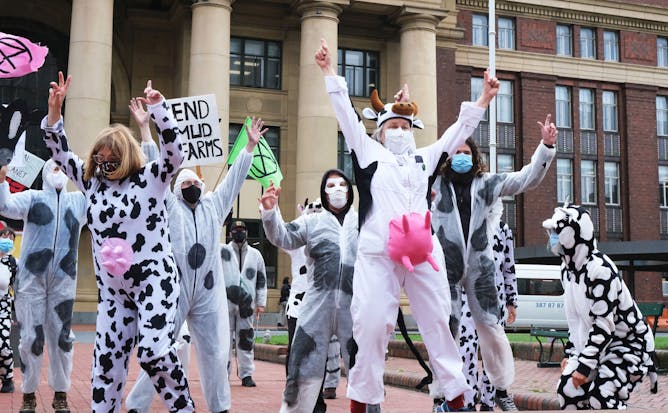
Lynn Grieveson/Getty Images
Nina Hall, Johns Hopkins University; Charles Lawrie, University of Sussex; Sahar Priano, Johns Hopkins University
By introducing tactics of direct action and digital mobilisation, Fridays for Future and Extinction Rebellion have renewed the climate movement and accelerated climate action.
|
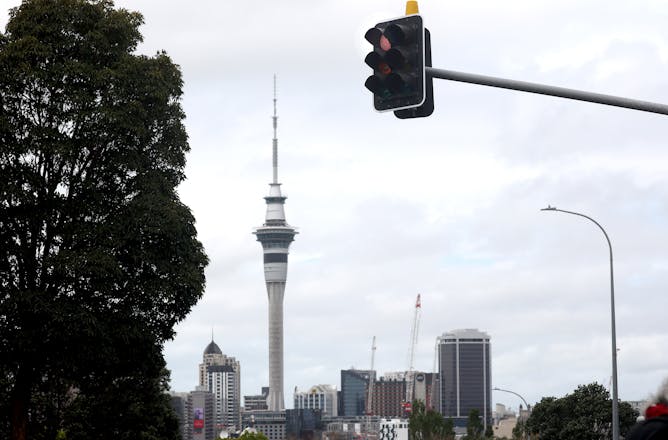
Phil Walter/Getty Images
Dion O'Neale, University of Auckland; Andrew Sporle, University of Auckland; Emily Harvey, University of Auckland; Steven Turnbull, University of Auckland
Vaccination and testing requirements will limit the number of infected people leaving Auckland, but cases are likely to spread across the country as people travel in the lead-up to the holiday season.
|

National Party interim leader Dr Shane Reti, flanked by colleagues, prepares to announce Judith Collins has been removed as party leader.
GettyImages
Suze Wilson, Massey University
New Zealand’s National MPs are set to elect their fifth leader in just four years to take on Jacinda Ardern’s government. What “habits of the unsuccessful” should they avoid in their next leader?
|

GettyImages
Richard Shaw, Massey University
Representative democracies require functional governments but they also need strong oppositions. At the moment, New Zealand has one of these things but not the other.
|

Shutterstock/Adel Newman
Sarah Seabrook, National Institute of Water and Atmospheric Research; Elisabeth Holland, The University of the South Pacific; Lisa Levin, University of California San Diego; Natalya Gallo, University of Bergen
The ocean has been buffering us from the impacts of climate change, but it is reaching the limit of this capacity. Integrating ocean and climate policy will be crucial.
|
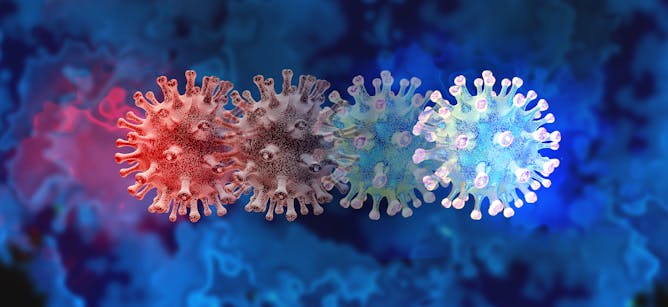
Scientists find variants by sequencing samples from people that have tested positive for the virus.
Lightspring/Shutterstock
Prof. Wolfgang Preiser, Stellenbosch University; Cathrine Scheepers, University of the Witwatersrand; Jinal Bhiman, National Institute for Communicable Diseases; Marietjie Venter, University of Pretoria; Tulio de Oliveira, University of KwaZulu-Natal
There’s a new COVID lineage called B.1.1.529. It has a genetic profile very different from other circulating variants
|

Photo courtesy of Apple Corps Ltd
David McCooey, Deakin University
An extraordinary technological feat, Get Back looks and sounds astonishingly good.
|
From our international editions
|
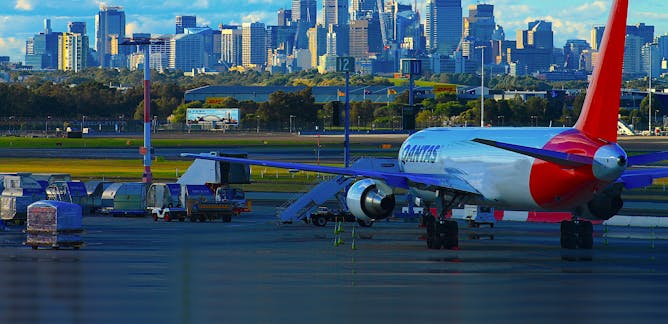
Michelle Grattan, University of Canberra
The Morrison government has delayed its plan to open the international border on Wednesday to skilled workers and students, as it awaits more information about the Omicron variant of COVID. Cabinet’s national…
| |
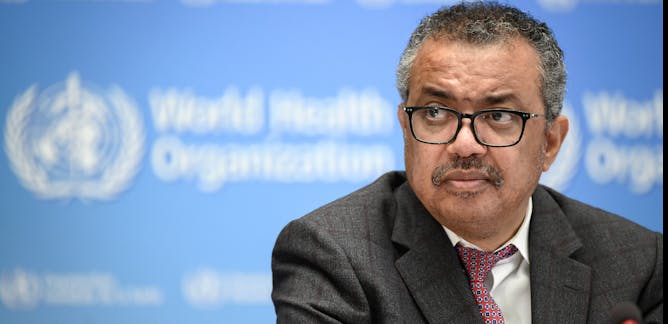
Ed Feil, University of Bath
Not much data, but lessons have been learned from the slow response to delta.
|

Jennifer Juno, The Peter Doherty Institute for Infection and Immunity; Adam Wheatley, The University of Melbourne
With low COVID vaccination coverage in southern Africa, some have suggested global vaccine inequities may be responsible for the emergence of Omicron.
| |

Joseph Bak-Coleman, University of Washington
Research from Meta and some scientists shows no harm from social media, but other research and whistleblower testimony show otherwise. Seemingly contradictory, both can be right.
|

Kate Kilpatrick, The Conversation
Rates of obesity and eating disorders like anorexia and bulimia both surged among young people over the past two years. Scholars explain why, and how parents can support kids dealing with body shame.
| |
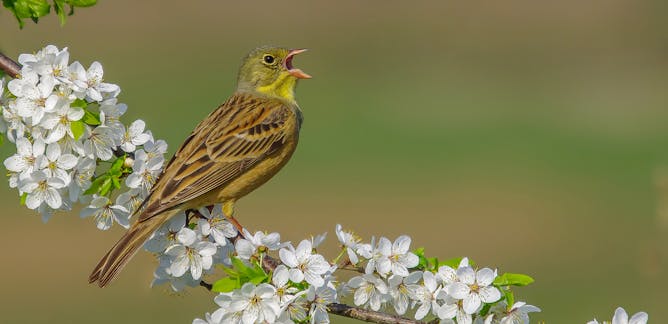
Simon Butler, University of East Anglia; Catriona Morrison, University of East Anglia
Research from across Europe and the US shows that as biodiversity declines, the natural world falls more silent.
|
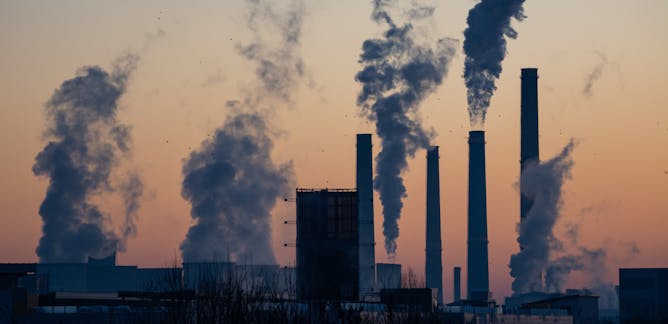
Guntur Sutiyono, ClimateWorks Australia; Petra Christi, ClimateWorks Australia
Developing a carbon market in the electricity sector should not just provide further permission to emit: it should actively assist the government to phase out coal and to fund low-carbon technology.
| |
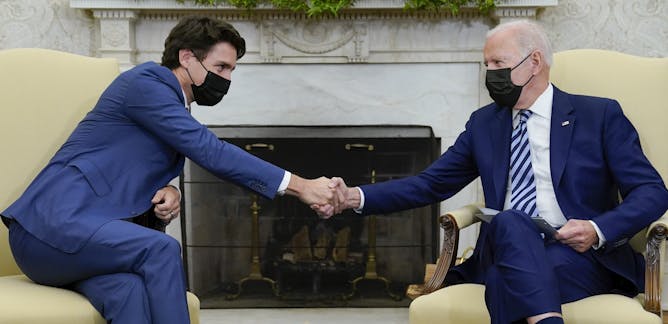
Noah Fry, McMaster University
Amid another flurry of U.S. protectionist measures, Canada should reconsider the value of global trade deals over bilateral agreements. But it should also support its own industries.
|
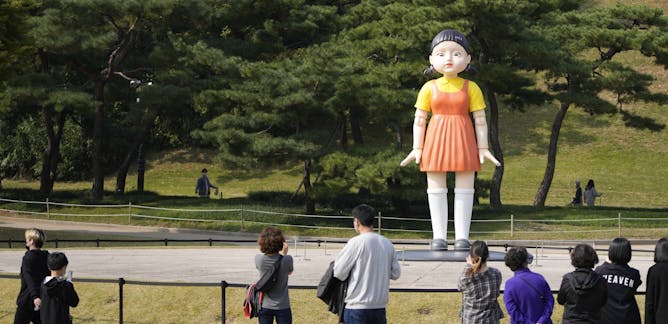
Greg Sharzer, University of Toronto; Sudol Kang, Korea University
Squid Game alludes to anti-worker violence that has permeated South Korean labour history, and reminds viewers of the need to overcome real inequalities.
| |
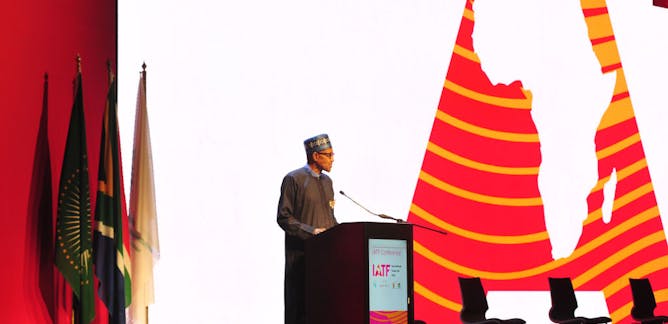
Doyin Odubanjo, Nigerian Academy of Science
The current spate of travel bans is rather hasty and irrational given that we know that the variant is in several countries already.
|
|
|
| |
| |
| |
| |
|
|
|
|
|
|
|